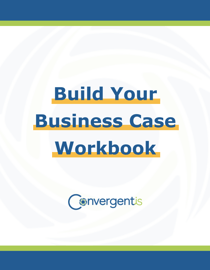An effective knowledge management system (KMS) in procurement is no longer a luxury—it’s a necessity. When your organization is able to quickly and successfully gather and use procurement knowledge, you are better able to streamline operations, improve supplier relationships, and make data-driven decisions for long-term success.
But which KMS is best for procurement, and how can you capture and use this procurement knowledge effectively? This article will explore the wealth of options available to organizations and best practices for capturing procurement knowledge.
What Is Knowledge Management in Procurement?
Knowledge management in procurement refers to a systematic approach to gathering, sharing, and efficiently using knowledge gained from procurement activities across an organization. Knowledge can be gathered from items such as supplier information, contract terms, and market trends. When a knowledge management system is designed well, it ensures that the appropriate parties in a business are able to easily access up-to-date information that can be used to improve decision-making.
How to Effectively Capture Procurement Knowledge
Document Procurement Processes
Step one to effectively capture procurement knowledge is to document all key processes in your procurement system. Thoroughly record the entire process from supplier selection to contract management. Pro tip: Utilize templates to ensure consistency and standardize the documentation process.
This step is important to follow as it will aid in knowledge retention, transparency and better set up your organization for seamless scalability. The procurement process involves complex processes and decisions that need to be documented for future reference. By capturing these processes in detail, you retain valuable organizational knowledge, even if some employees leave or roles change.
Leverage Technology
Consider using tools like AI and machine learning to automatically capture procurement data. Soon, this will be more than a suggested best practice; it will be a need within the procurement process. Technology is quickly evolving, and staying ahead means ensuring your company adapts to these advancements while improving efficiency. Many modern procurement platforms offer automated data collection, which helps reduce manual effort and ensures data accuracy. Doing this will help streamline workflows and provide your team with accurate, real-time data and insights to help inform strategic business decisions.
Collaborate and Share
Collaboration is the key to innovation and problem-solving. When knowledge is shared across the organization and not just left to one team, decisions can be made more holistically. Different departments, such as finance, operations, and supply chain, bring different points of view and unique insights to the table, each of which is important to consider when making important decisions within an organization. By promoting knowledge sharing, you prevent critical information from being confined to a single team and thus help build stronger relationships across departments.
Create a Central Repository
Store all procurement data, like contracts, supplier information, and performance reports in a centralized system so that all relevant stakeholders have access. Doing so will help create a more organized and transparent procurement process and also improve efficiency. This is an important step as it minimizes the risk of miscommunication and further encourages cross-departmental collaboration. Additionally, a centralized system can integrate with other systems, such as ERP (Enterprise Resource Planning) and CRM (Customer Relationship Management), which is valuable as it ensures data consistency and alignment across your entire organization.
Choosing the Right Knowledge Management System for Procurement
Selecting the right KMS for procurement depends on several factors. It’s important to consider your organization’s size, technology needs, and how complex your procurement is. Here are a few things to note when making this decision:
- How seamlessly does your KMS integrate with existing systems within your organization?
- How advanced the KMS’s AI and analytics capabilities are.
- If the KMS possesses collaboration features for collaboration between both internal and external stakeholders.
Eloise Epstein’s Take: Technology and Procurement Relationships
Procurement expert and thought leader Eloise Epstein encourages us to ask, “How do we use technology to improve our procurement interactions and relationships?”
We must look beyond just storing knowledge for data gathering; we should also use these tools and systems to actively use that knowledge with the intention of strengthening supplier relationships, negotiating better deals, and ensuring smoother procurement processes. Technology can empower procurement teams to engage more effectively with stakeholders, suppliers, and partners.
Final Thoughts
The best knowledge management system for procurement is one that not only captures and stores information but also enhances your procurement team’s ability to interact and collaborate effectively. By leveraging the right tools, fostering a culture of knowledge sharing, and asking the right questions—like Eloise Epstein suggests—you can take your procurement processes to the next level.
Learn more valuable business tips by downloading our Build Your Business Case Workbook below.


